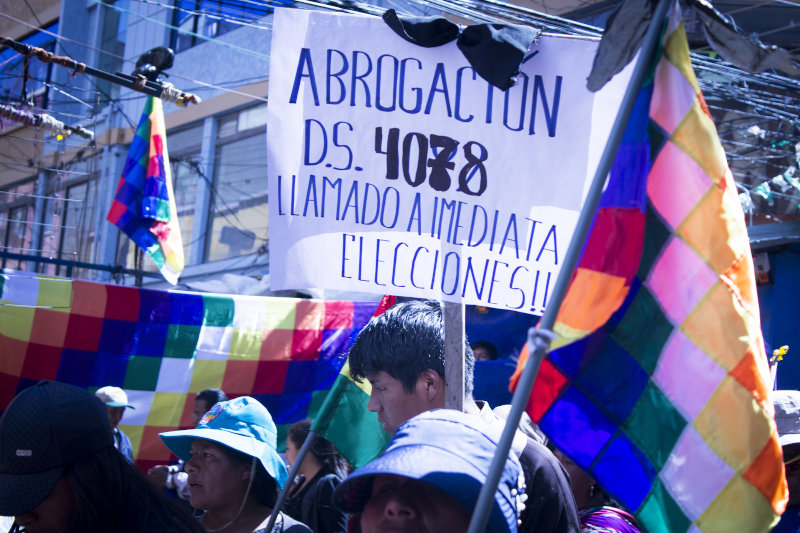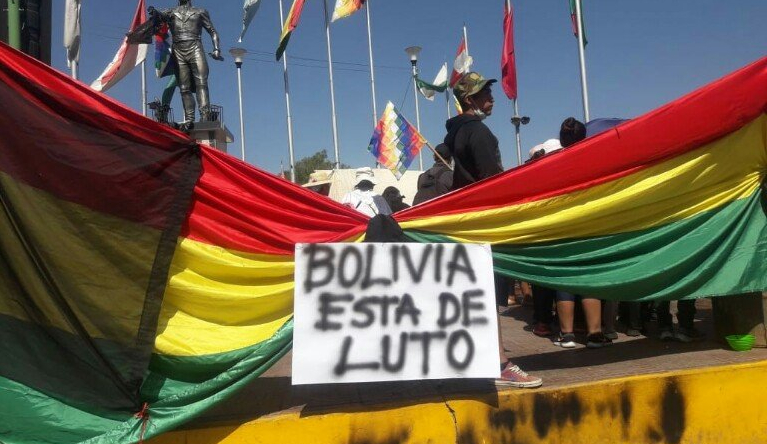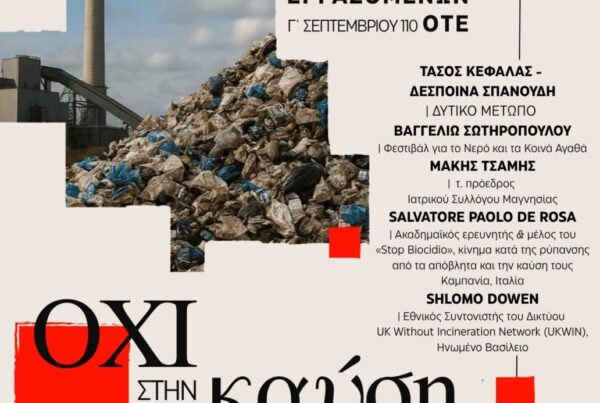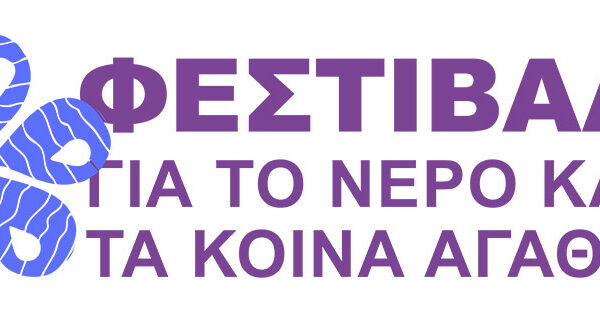By Undisciplined Environments*
As a group of scholars and activists oriented towards a common horizon of emancipatory social and ecological transformation, we are deeply worried by the situation in Bolivia. After collective reflection and discussion, we want to share our position and thoughts on the crisis.
1. We reject the attempt, on the part of the self-proclaimed government, to force a reactionary exit to the political crisis in Bolivia.
After contested elections on 20 October ended in “catastrophic deadlock”, in the midst of Bolivia’s social convulsion, the military withdrew its support from the government led by Evo Morales and the Movement to Socialism party (MAS). This paved the way for the self-proclamation of an interim, far-right government led by former senator Jeanine Añez on 12 November. Since then, MAS supporters have staged protests throughout the country, which have been met with deadly military repressions.
We recognize that the current crisis has deep roots. The post-electoral deadlock started, at least in part, out of a citizens’ movement that included – alongside conservative groups – progressive sectors, independent leftists, indigenous organisations, unions, and environmental and human rights NGOs and activists. These advanced legitimate concerns over the erosion of democratic guarantees in Bolivia, whose main inflection point was the controversial decision on the part of Evo Morales to force the Constitution in order to allow him to run for a fourth term (after losing a referendum over this in February 2016).
At the same time, it is undeniable that the Bolivian far-right has exploited the convulsed situation that followed the elections – marked by fraud allegations, polarisation, institutional confusion and street violence, perpetrated by pro-MAS and opposition groups alike – to force a government change. Irrespective of whether this is defined as a coup, it is an attempt to impose, with military backing and US involvement, a reactionary government – featuring clear fascist, racist, misogynist and classist elements – with dubious constitutional legitimacy and a meagre 4% of electoral support.
2. We condemn the military repression of demonstrations and the excessive use of force against protesters, which have resulted in 32 confirmed deaths and over 700 injured at the time of writing.
In a climate of escalating tension and polarisation, violent acts have been perpetrated on both sides since the start of the crisis, including burning of houses and office buildings, aggressions, sexual violence, and shootings. Yet the deadly military response to the mobilisations in the last two weeks marks a clear escalation in the level of violence.
In response to the strategy of roadblocks and surrounding towns adopted by MAS supporters – including by neighbourhood organisations in El Alto and cocalero unions in the Cochabamba department – the military repression ordered by the self-proclaimed government has been grossly disproportionate and unjustified, resulting in bloodbath and generalised fear.
We join many Bolivian organisations and national and international human rights defenders in condemning the government’s use of military force, the passing of Supreme Decree 4078 (granting impunity to the military to shoot to kill when threatened), the use of terrorism and sedition laws against political opponents, and restrictions on the media and on freedom of press.
3. We are concerned by disturbing expressions of racism and the resurgence of anti-“Indio” sentiments among members of the self-proclaimed government and many of the groups that sustain it.
Racist violence in the days immediately after the contested election found its most symbolically charged expression in the burning of the Wiphala – the Aymara flag that has come to symbolise the popular-indigenous revolts against the neoliberal government of Sánchez de Lozada in 2003, and was made an official state symbol in the 2009 Constitution.
Many in Bolivia have rightly criticised the ways that the Morales government sought to capitalise politically on indigenous symbols like the Wiphala, and to appropriate the language of Vivir Bien and Pachamama, often while openly repressing indigenous organisations and movements.
Nevertheless, we firmly condemn the ways that the self-proclaimed government and its far-right supporters – including the neo-Nazi, Christian fundamentalist oligarch and leader of the Santa Cruz Civic Committee, Luis Fernando Camacho – have sought to replace indigenous symbols with the reassertion of Christian ones. This is a despicable apology of colonial genocide, and a form of cultural violence against the country’s indigenous majority.
We stand with indigenous and campesino organisations, urban and rural (irrespective of their political preferences), and with other feminist and progressive groups, in defending the Wiphala and other indigenous symbols – not as a symbols of MAS party membership, but of anticolonialism, antiracism and plurinationality.

March against repression and for new elections in Senkata. Source: Chaski Clandestina.
4. In condemning the reactionary right, we maintain critical distance from simplistic narrations of the crisis, which attribute to Evo Morales’s exclusive representativeness of Bolivia’s indigenous and subaltern groups.
Following a call in this sense by Silvia Rivera Cusicanqui – also expressed in various ways by Bolivian feminist collectives, indigenous organisations, universities and activist groups – we want to caution against validating the Morales government’s experience in its entirety. The image of a “communitarian socialist” project – carefully cultivated by the MAS and its most theoretically refined ideologist, Álvaro García Linera, and broadly accepted and reproduced by the international Left – is simplistic and idealised.
The MAS government put forward a contradictory, World Bank-endorsed, neo-developmentalist model, fuelling state investments and limited redistribution through aggressively imposed resource extractivism that has been a source of much violence and tension, particularly in indigenous territories.
This is not to deny the important economic and social achievements of the Morales administration – including the recognition of indigenous rights and principles in the 2009 Constitution – strongly demanded by popular and indigenous movements. MAS was the most voted party in the last elections, and had won the previous three (2005, 2009, 2014) by a landslide. The ongoing popular mobilisations against the self-proclaimed government and for a return of Morales are therefore legitimate and every bit deserving of our solidarity.
Yet, many progressive critics in Bolivia have expressed concerns regarding the ways that MAS, during its years in government, kept a tight grip on workers’ and campesino unions; maintained friendly relations with, and promoted the interests of, transnational extractive capital and landed oligarchs (a key driver of the devastating forest fires that gripped the Chiquitanía region last Summer); and repressed dissident indigenous organisations, thus “domesticating” plurinationality.
Out of respect for those comrades and hermanxs who envision an emancipatory transformation beyond Morales, therefore, and listening to Bolivian feminists who encourage us to escape simplistic binaries – “either with Evo or with imperialism” – we feel that our firm rejection of the self-proclaimed government and its fascist, murderous politics should not imply glossing over the contradictions and shortcomings of MAS’s project.
Based on these considerations, we express the need for:
- An end to violence and to military repression, the identification of political and juridical responsibility for state-endorsed killings and other human rights violations, and the re-establishment of peace.
- The restoration of Bolivia’s political self-determination and the organisation of free, transparent and legitimate elections, approved by all parties and with independent international observers, respecting the 2016 referendum results and the political and civil rights of all Bolivian voters and party candidates.
- Respect for the sovereignty of the Bolivian people over its natural resources, as established in the 2009 Constitution, as well as for the rights of the country’s indigenous peoples to territorial self-determination, autonomy and rights to “free prior and informed consent”.
- The creation of new spaces of dialogue and alliance among Bolivia’s campesino, worker and indigenous movements – autonomous from the state – for the advancement of peace, democracy and self-determination, and for a popular-indigenous re-appropriation and re-signification of the constituent mandates, including plurinationality, resource and food sovereignty, and Vivir Bien.
* Written by Diego Andreucci, with help from Jonah Wedekind, Gustavo García López, Salvatore Paolo De Rosa and Panagiota Kotsila of Undisciplined Environments. The author wishes to thank Isabella Radhuber and Marxa Chávez León for their feedback and comments on an earlier version. Featured image reproduced from Chaski Clandestina.







Awesome! Its genuinely remarkable post, I have got much clear idea regarding from this post